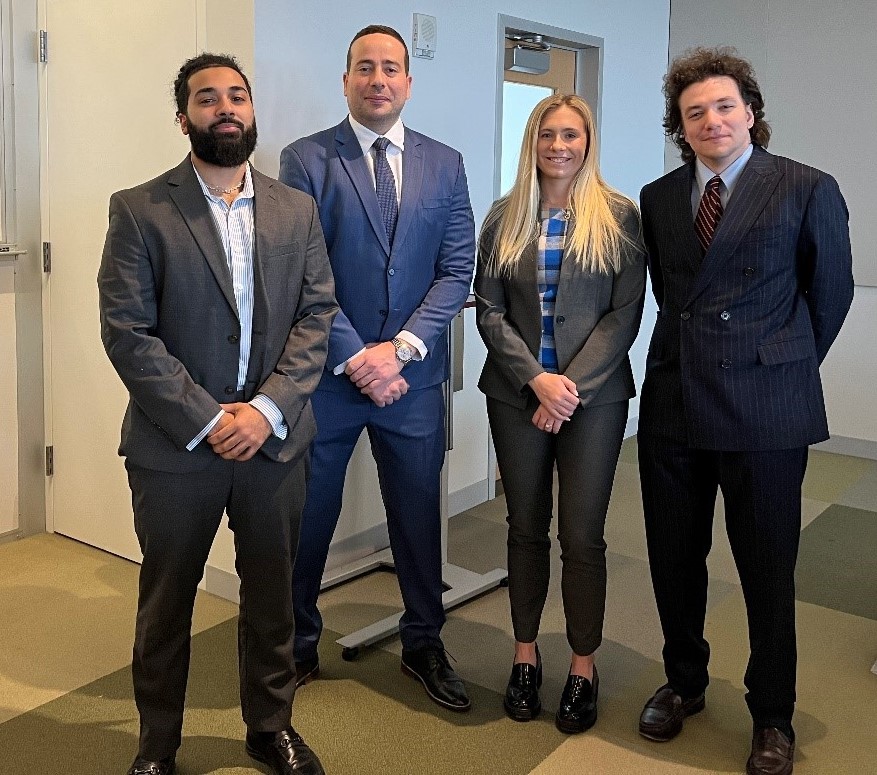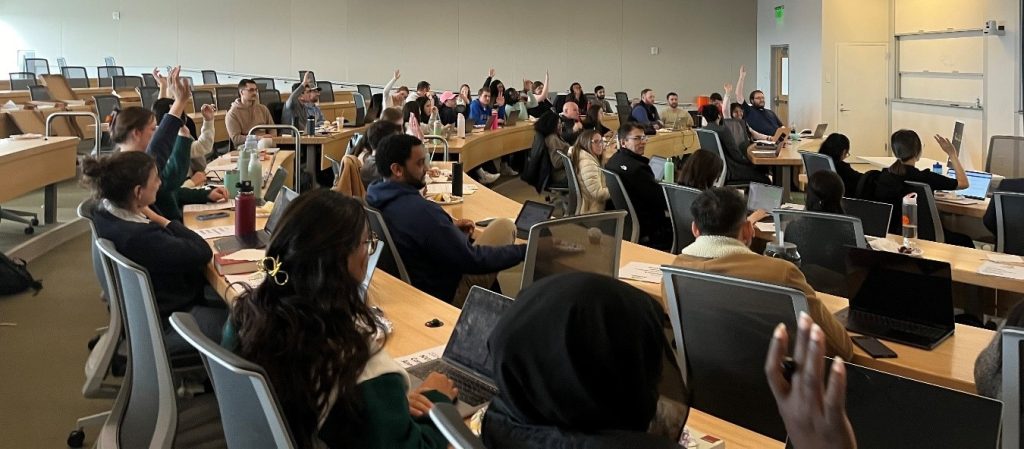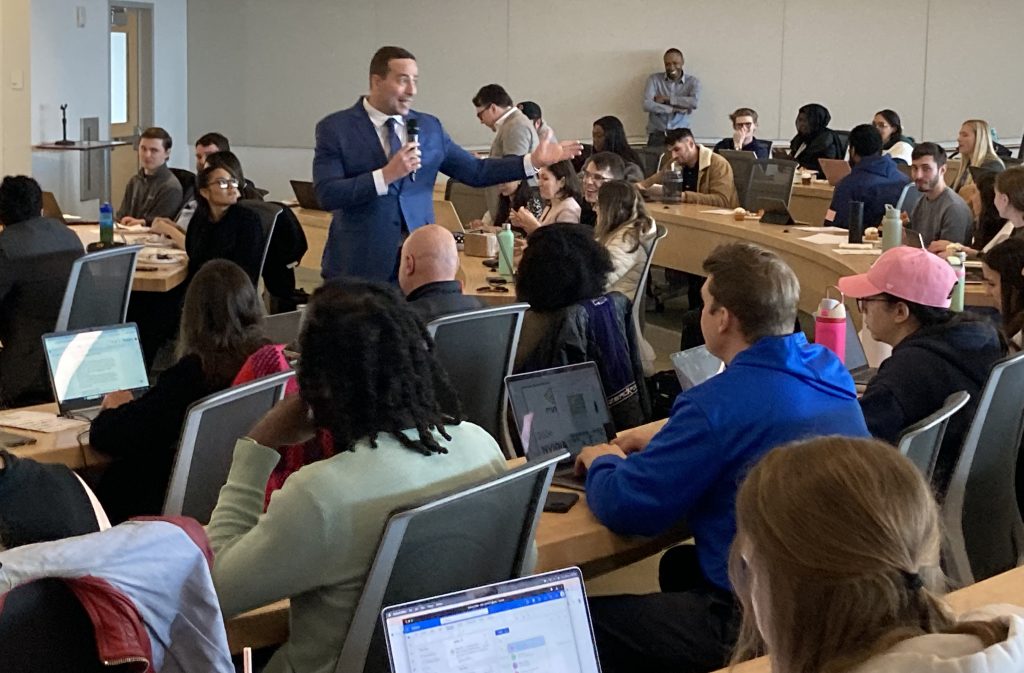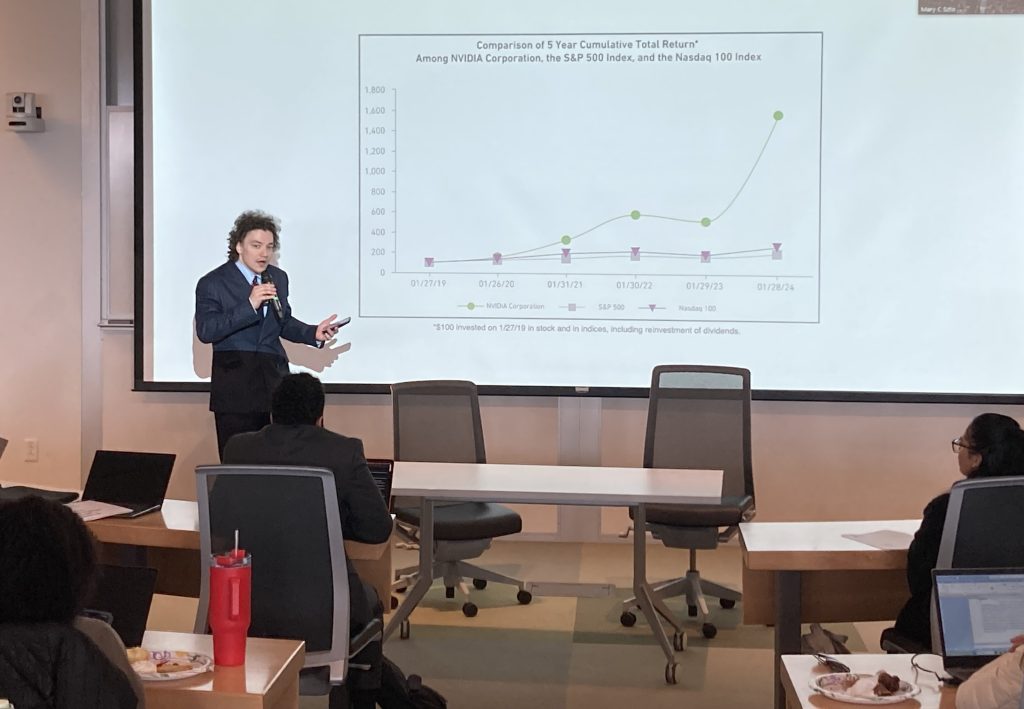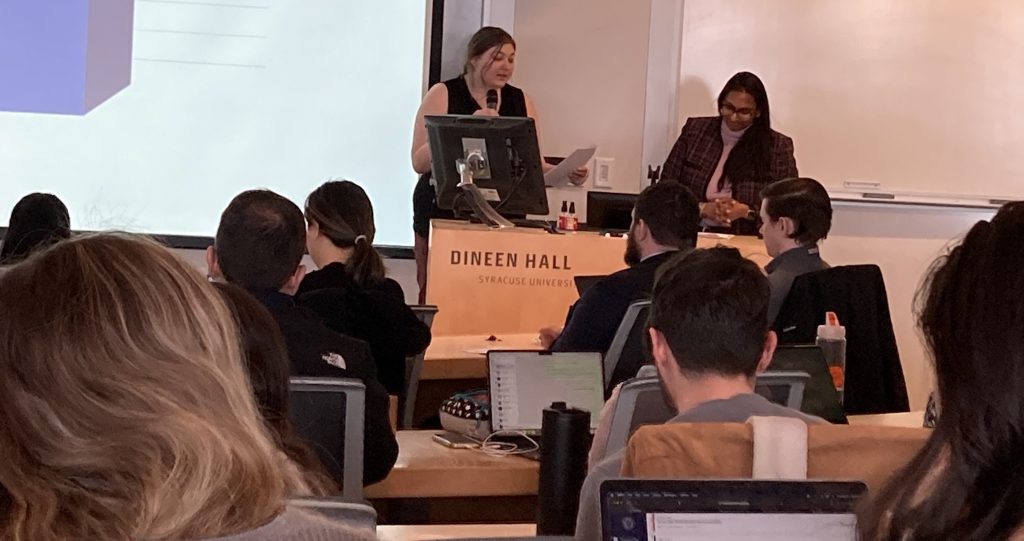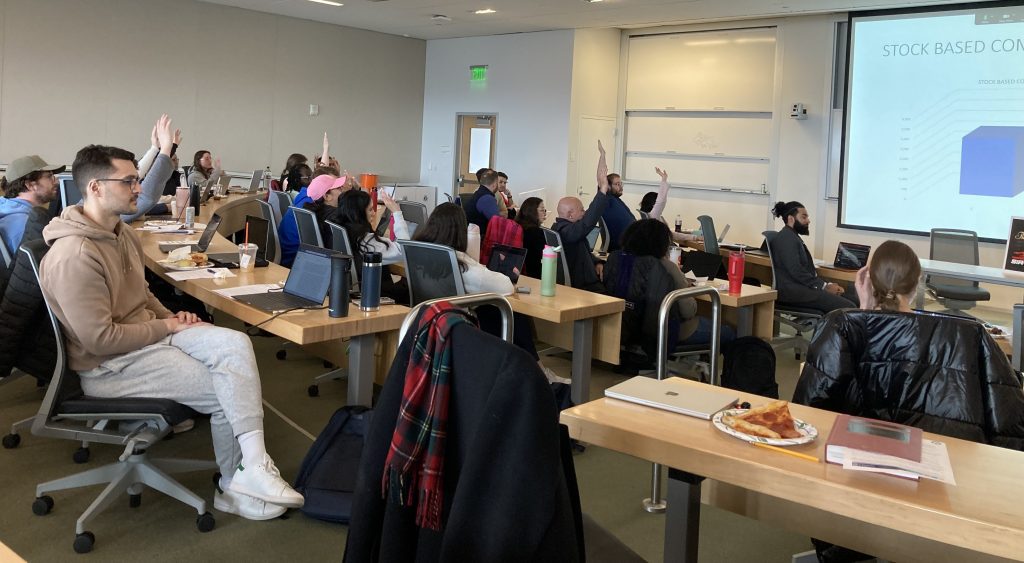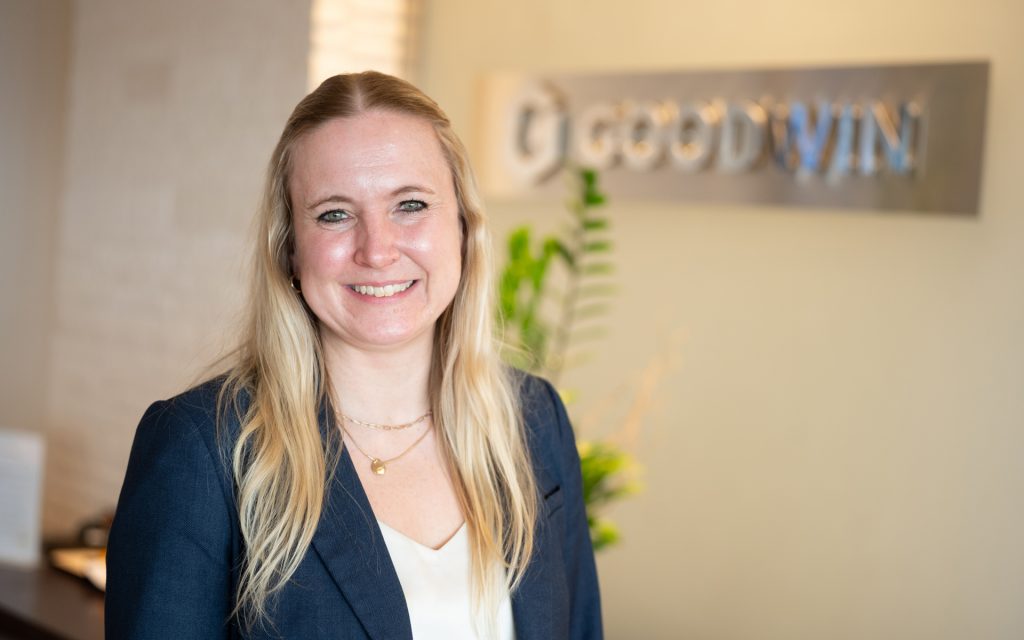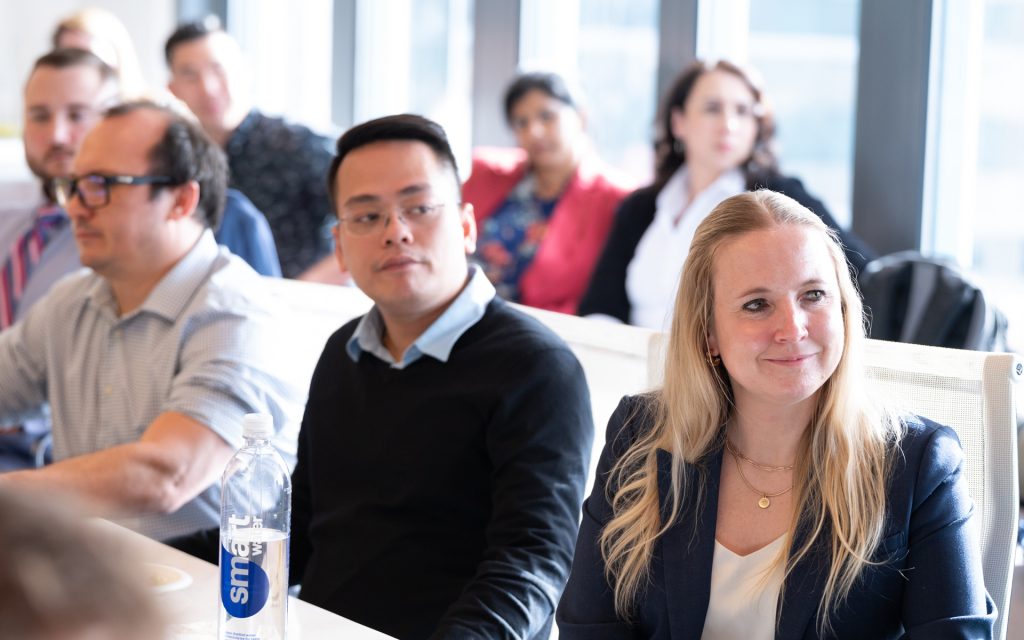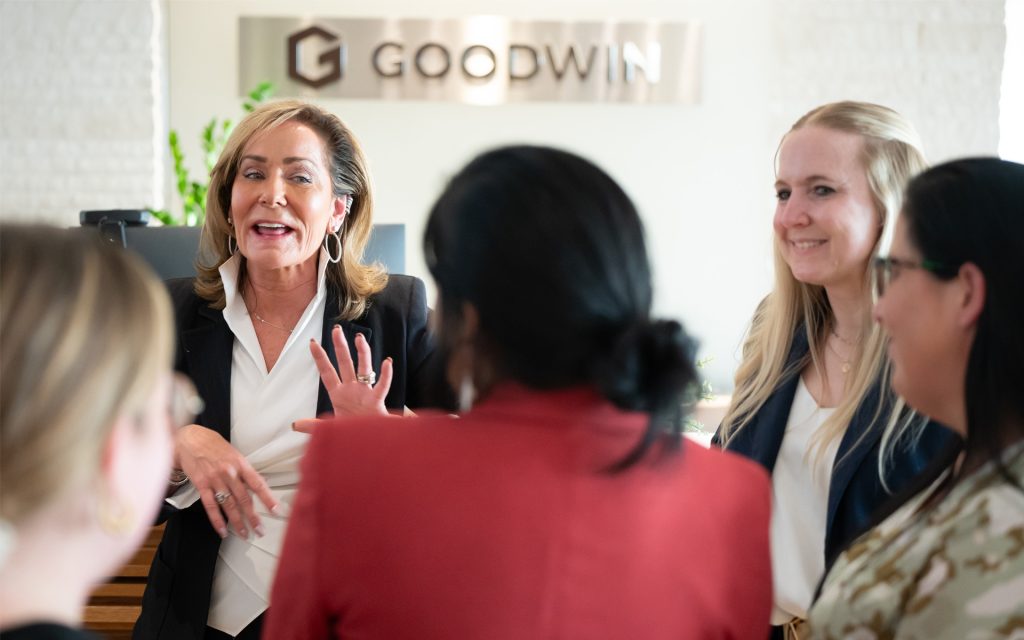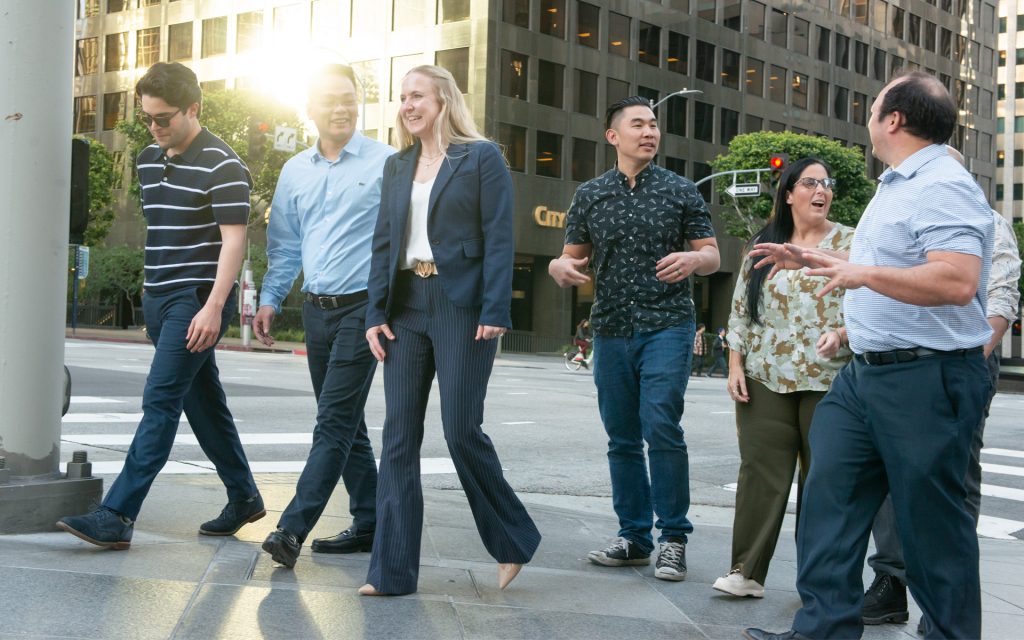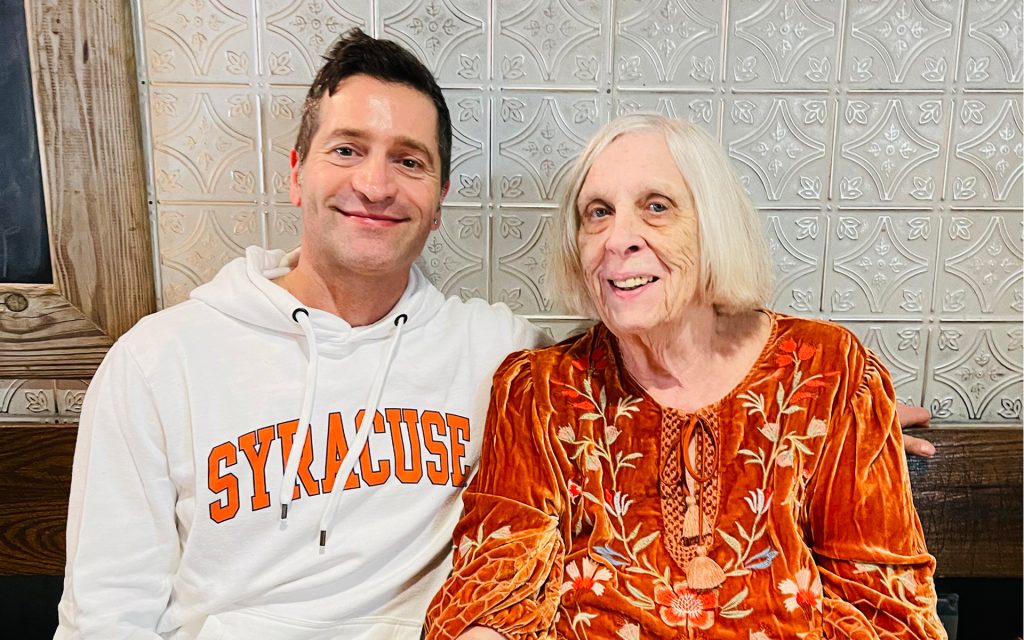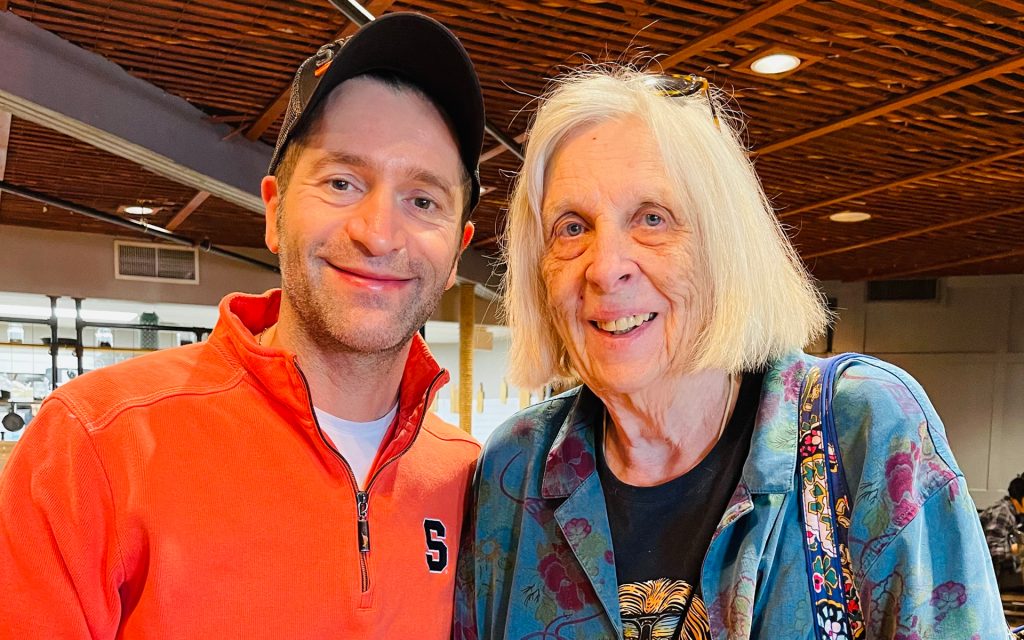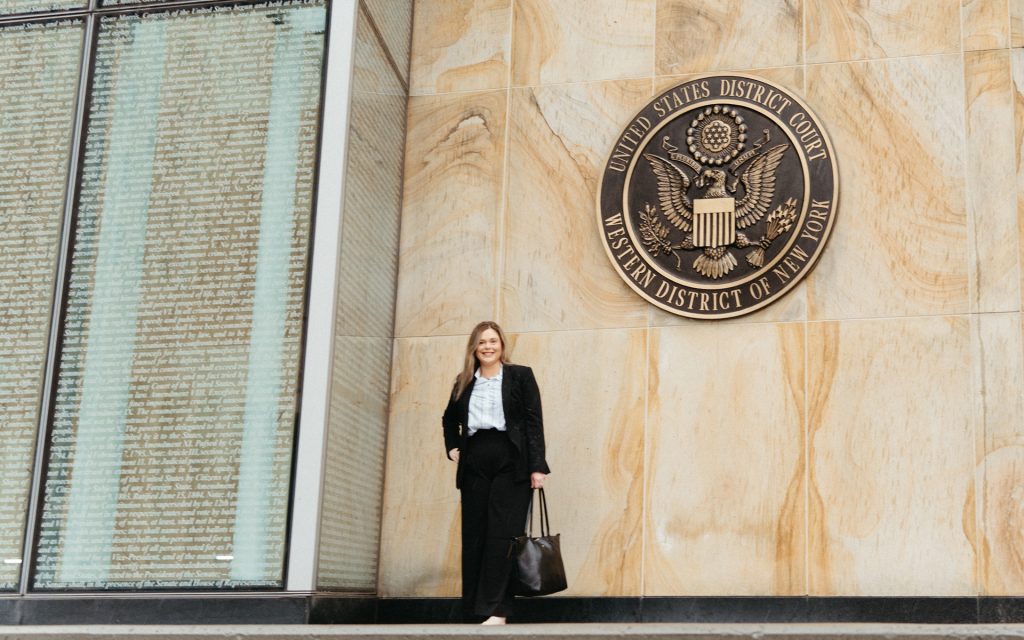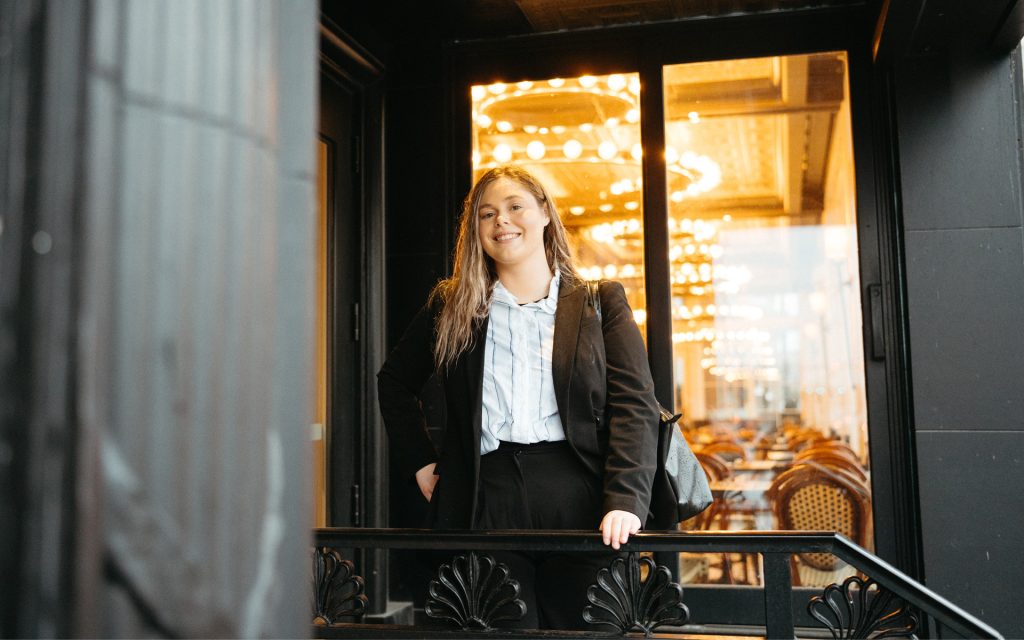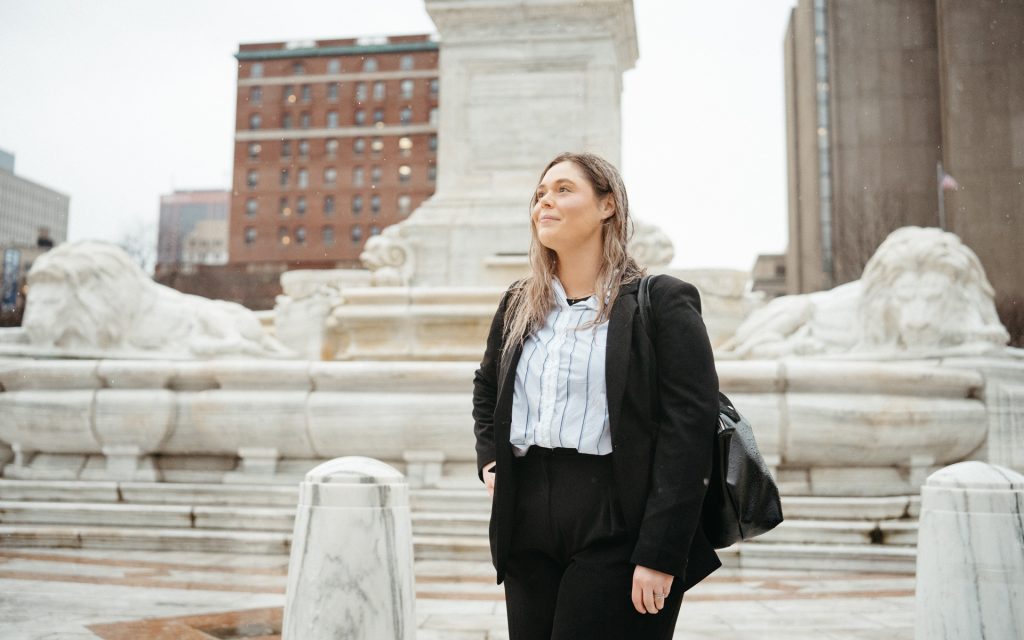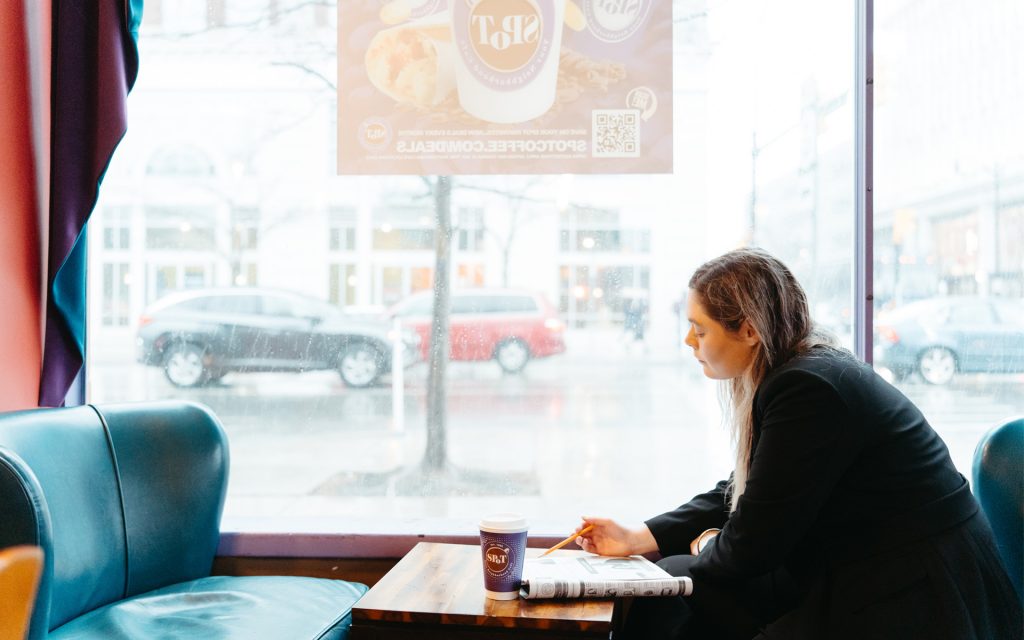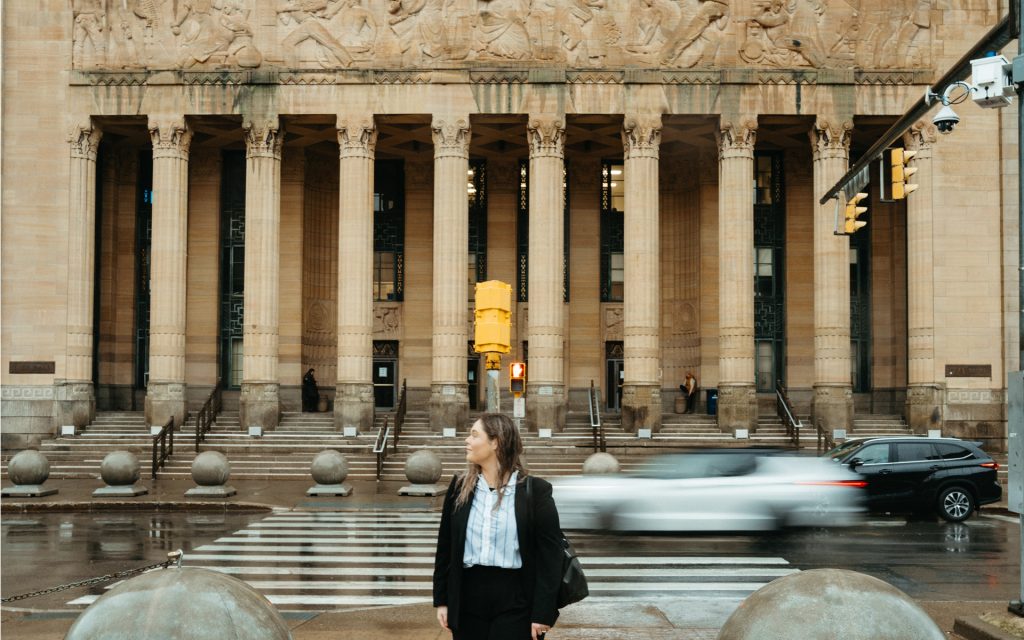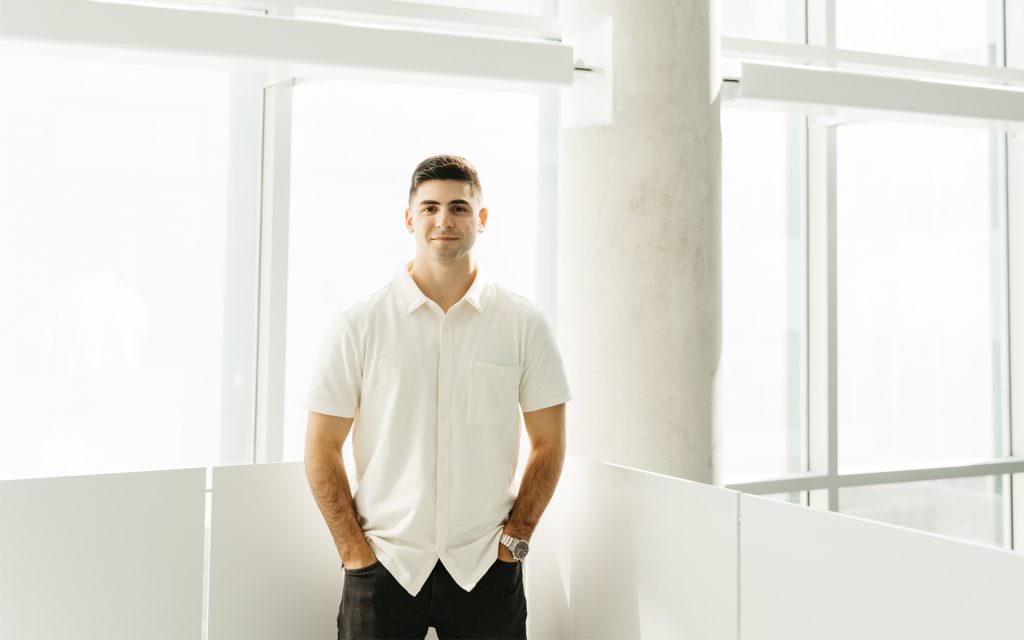
Chris Salotto ’22 (WSM), L’24, is not one to back away from a challenge. So, when the Fishkill, New York, native chose a college for his undergraduate degree, he opted for Syracuse University’s 3+3 program, which combines a business degree from the Martin J. Whitman School of Management with a law degree from the Syracuse University College of Law. And, while his interests lean toward business, Salotto is confident that having a law degree will surely be beneficial to his career, as well.
The Whitman School and Syracuse Law allow students who are academically qualified to complete the core requirements of a business degree in just three years and then transition to the law school. Students must apply to the 3+3 program in the first year of their undergraduate studies, getting a conditional admittance to Syracuse Law. After their junior year at Whitman, students begin law school (assuming they meet the academic requirements) but do not receive their bachelor’s degree until the first year at Syracuse Law is completed. Aside from finishing both degrees in only six years, instead of seven, there are also financial benefits, including merit scholarships that can offset a significant portion of the College of Law’s tuition.
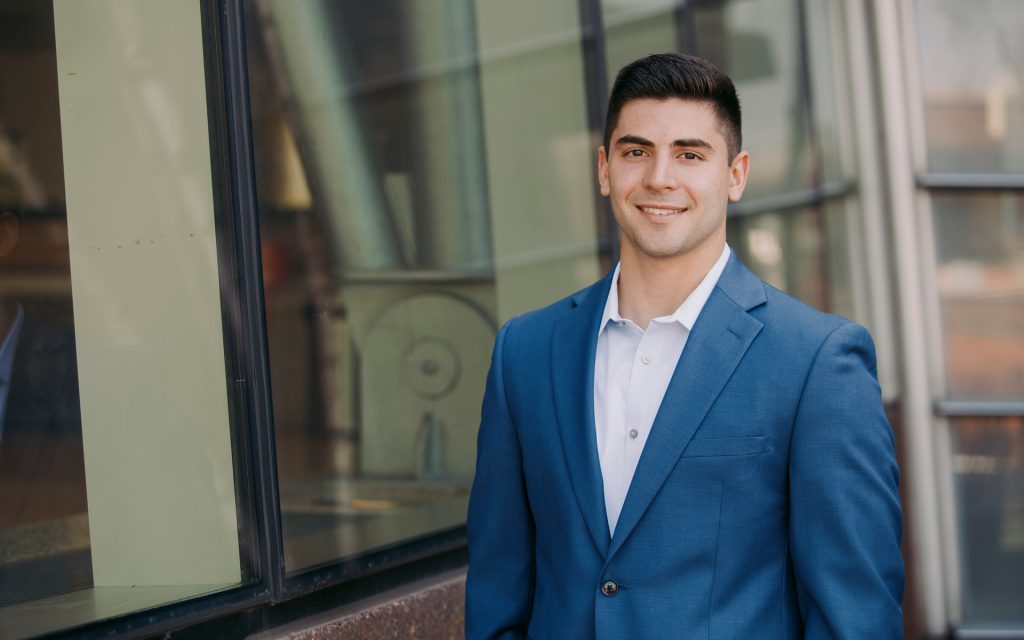
Salotto successfully completed his first three years of undergraduate work as a supply chain management major, which included a summer internship at Boeing, before transitioning over to Syracuse Law. His desire to pursue law comes from his family. His father has worked in law enforcement for 25 years, and his mother is a family law attorney and town judge. That combined influence helped Salotto see the value of a law degree, but it also made him want to carve his own path toward corporate law, specifically a desire to work as in-house counsel one day.
“My mom played a huge part in encouraging me,” he says. “She told me that 1L is very rigorous, but to fight through it and graduate because, even if I didn’t want to ultimately become a lawyer, having that degree would open up a lot of opportunities for me.”

He did persevere as a 1L and went on to succeed in the program. Salotto has gained a great deal of practical experience as a 3L, including working as a legal intern at CooperSurgical, Inc., a medical device company; and serving as a corporate counsel extern at SRC, Inc., a research and development company contracting with the federal government.
Salotto has taken an interest in activities on campus, too. This year, he worked at the law school’s Transactional Law Clinic as a student attorney, helping entrepreneurial-minded people in the community form their own businesses. His work led to the formation of a couple of nonprofit corporations, as well as the establishment of a few LLCs. As a 2L, he worked with the law school’s Innovation Law Center as a research associate, where local entrepreneurs can get information on patents and research the requirements for intellectual property (IP) protection. His work involved compiling reports and helping entrepreneurs apply the information gathered to their own innovations. Salotto found this work very rewarding and knew it was an important skillset for his future ambitions.
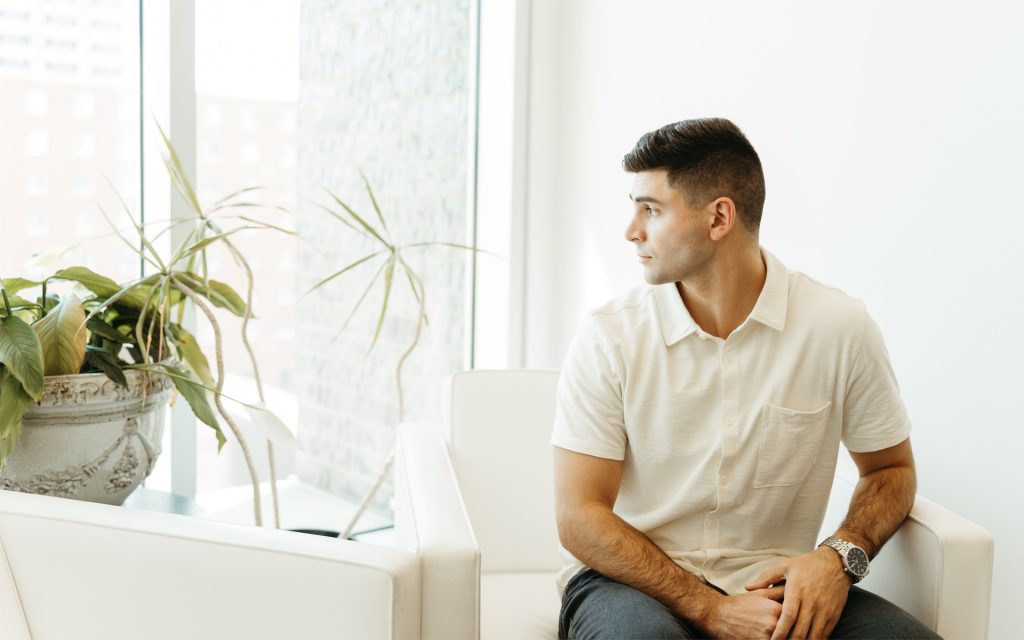
While working on a 3+3 degree has certainly had its challenges, it is about to pay off as he prepares to cross the finish line at graduation this May. He intends to pass the bar and start his career at KPMG U.S., where he interned in the summer of 2023, as an international tax associate. He has been a KPMG campus ambassador while in law school and hopes to continue this role when employed there, building and maintaining a relationship between Syracuse Law and the Big Four accounting and professional services firm.
“I would tell anyone that is interested in business and the law to apply to the 3+3 program,” he says. “It keeps your possibilities open, and, even if you get a law degree, you don’t have to practice law a day in your life, but you’ll have that valuable background to bring into the business world. Best of all, it shows that you’re willing to invest in yourself, which is something any employer wants to see. It hasn’t been easy, but I already know it’s been worth it, and I’m eager to see what the future holds for me.”

